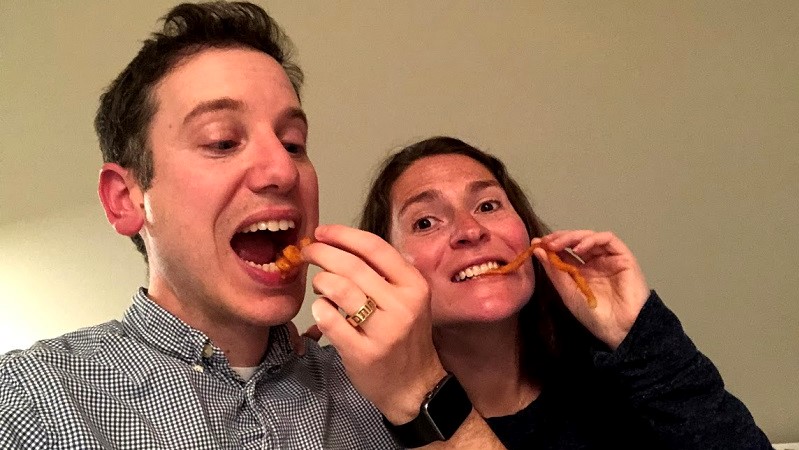When I met Duncan, he had never kept kosher in his life. On our second date, when it seemed like there might be more dates in our future, he asked me about what it meant for me, a conservative rabbinical student, to be dating him, a life-long bacon cheeseburger-eating reform Jew (his words, not mine). So I stated my bottom line for what I wanted my life to be. I will always have a kosher home, and my family will always keep some moderate degree of Shabbat. Well, clearly my answers were satisfactorily non-threatening, because here we are more than 12 years later. But now you’re dying to know – does Duncan keep fully kosher? Did his diet change immediately overnight? The answer is in a related lesson from this week’s Torah portion.

This week we read Parshat Shemini. The parshah begins with the words “On the eighth day” after the priests have been installed. The text picks up with the narrative of creating a holy leadership team of Aaron and his sons, who unfortunately make an offering without the appropriate directions or intentions and end up losing their lives. Following this tragic story are the laws for making time holy with sacrifices and laws of making our bodies holy by following the laws of kashrut.
The rules and laws of kosher eating, the Jewish dietary code, are listed in this week’s text. These laws are not based on health, as commonly thought, but rather the ability to sanctify ourselves and be holy, as God is holy. The food we put into our bodies is representative of how we feel about ourselves and our connection to God.
Interestingly, however, choosing this lifestyle is not an all-or-nothing, all-at-once commitment. The dietary laws are given incrementally because the Torah recognizes that any change in diet is best done over time and with thought and care. At first, Duncan started keeping kosher when we were together while dating, meaning he wouldn’t eat pork or shellfish or mix milk and meat while we were eating together. At some point he stopped eating non-kosher meat. Gradually, he found his way into the kosher lifestyle in a way that was both meaningful and not overwhelming.
For me, I’ll just say my relationship with food is complex. When I was younger, I was a picky eater, sticking mostly to peanut butter and jelly. As I aged, I learned to like a wider variety of foods, but always struggled with portion control. At 11 years old, my family took a break from keeping kosher outside the home, and I ate my first ever chicken finger. The clouds parted, a choir sang, and I thought the world was an even more incredible place because of this new ambrosia, not realizing I was significantly late to the McNugget game. Having kept kosher for most of my life, I’ve always been at least somewhat aware of the food I put into my body. I learned how to ask “Is there pork in this?” in multiple languages so I could be safe on trips. And later I endured salmon for dinner six nights in a row on what was otherwise a wonderful cruise because that was the only entree option available to this kosher-keeping non-vegetarian.
While kosher is right for me, it might not be for everyone, and treating your body as a holy vessel is more than keeping kosher and portion control. It is slowly and carefully paying attention to what nourishes you and leads you to being the best version of yourself. Parshat Shemini reminds us that the reason baby steps are successful is because each step doesn’t just move forward, it builds on the knowledge of the one before it.
– Rabbi Eve Posen



